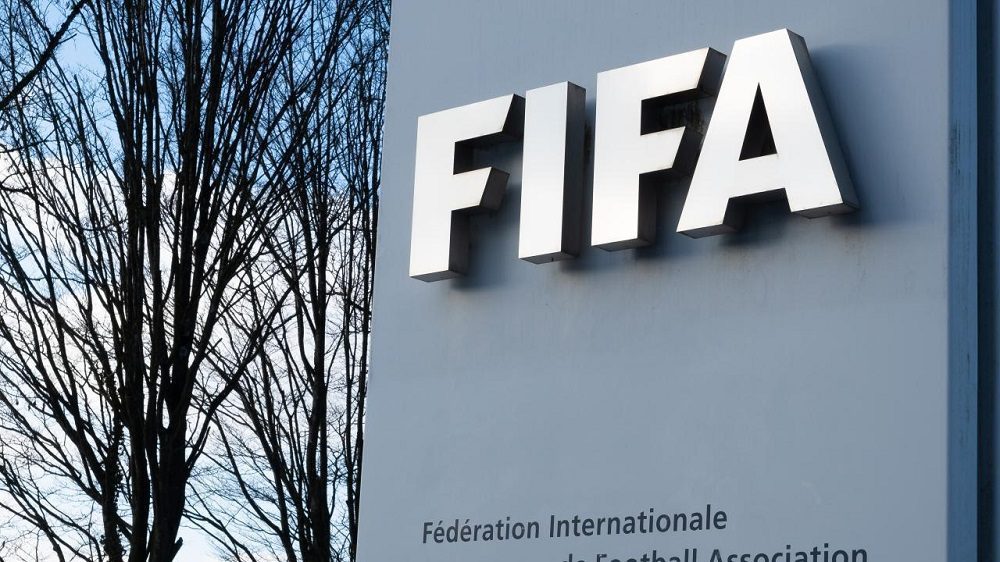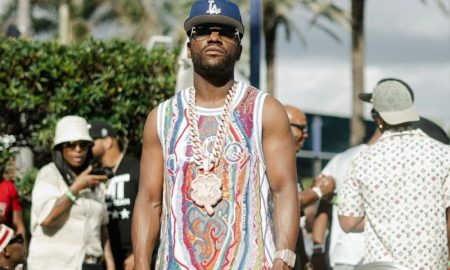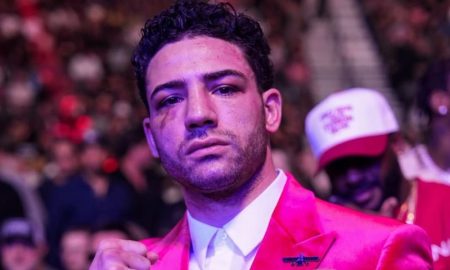
FIFA Could Copy FINA’s Policy Regarding Transgender Athletes

In December 2020, Mara Gomez made history as the first transgender soccer player to play in Argentina’s women’s championship. Her debut for Villa San Carlos in Berisso, Argentina, against Lanus in the Primera Division was the culmination of years of struggles, having dealt with persecution, discrimination, and abuse. She says soccer has saved her life, and she wants to use her experiences and powerful voice to tell the world the importance of equality, love, and opportunity.
Gomez’s path to making history wasn’t easy: The 24-year-old striker signed with the team Villa San Carlos, which represents the coastal city of Berisso and is part of Argentina’s premier soccer league, in January 2020, nearly a year before she was able to play in her first pro game.
Rich von Biberstein/ Icon Sportswire | Having no model to follow anywhere in the world made Mara Gómez a pioneer in the inclusion of trans people in professional soccer
Before she could play, Gomez had to convince the Argentine Football Association that she didn’t have a competitive advantage as a transgender woman. Part of that process included providing blood samples to prove her testosterone levels were on par with the International Olympic Committee’s guidelines for transgender athletes.
In December, the AFA finally announced it would permit Gomez to play, though she would be required to take hormone blockers and have her testosterone levels tested before and in the middle of each tournament, per the International Olympic Committee’s guidelines.
FINA ruling on transgender policies

UAN MABROMATA/ AFP/ Getty Images | Groundbreaking Argentine soccer player Mara Gomez gave trans Latinx women a voice
World soccer’s governing body and athletics administrators are reviewing their transgender eligibility policies after swimming passed new rules that restrict transgender participation in women’s events. Last week, swimming’s world governing body FINA voted to restrict the participation of transgender athletes in elite women’s competitions and create a working group to establish an “open” category in some events as part of its new policy.
The new policy states that male-to-female transgender swimmers (transgender women) are eligible to compete in women’s competitions only if “they can establish to FINA’s comfortable satisfaction that they have not experienced any part of male puberty beyond Tanner Stage 2 (of puberty) or before age 12, whichever is later.”
FIFA reviewing its policy
A spokesperson for FIFA said it was in a consultation process over a new policy. FIFA said it was taking guidance from medical, legal, scientific, performance and human rights experts and also the position of the International Olympic Committee (IOC). The Football Association’s chair, Debbie Hewitt, has also acknowledged the difficulties in establishing a policy that would ensure the sport remained fair and safe while also respecting the rights of all those who wish to compete.

Joseph Prezioso,/ Agence / France-Presse / Getty Images | Swimming’s world governing body issued a ban human rights advocates have heavily criticized
Last year, the IOC issued a ‘framework’ on the topic, leaving eligibility decisions up to individual sporting bodies. Now International Cycling Union (UCI) tightened its rules on transgender participation just last week by increasing the transition period for low testosterone to two years and reducing the maximum permitted testosterone level in athletes.
Furthermore, the Rugby league has also banned transgender players from women’s international competition until further notice following FINA’s decision.
More in Football
-
`
Boxing Legends Mike Tyson & Floyd Mayweather Set for Fight Amid Health Concerns
Mike Tyson is stepping back into the ring again, and this time it is with Floyd Mayweather. Two of boxing’s biggest...
September 17, 2025 -
`
Indiana Fever Player Caitlin Clark Turns Down $15 Million BIG3 Offer!
Caitlin Clark just said no to a $15 million offer from Ice Cube’s BIG3 league. The offer came not long after...
September 10, 2025 -
`
Judge Restricts Notorious ‘Alligator Alcatraz’ Operations in Landmark Ruling
The infamous immigration detention center known as “Alligator Alcatraz” just hit a legal wall. A federal judge dropped a major ruling...
September 3, 2025 -
`
The Forgotten Military Leagues of All-Americans During World War II
Football didn’t stop for the war. In fact, it got even weirder. During World War II, football found a second home...
August 27, 2025 -
`
How Floyd Mayweather Schooled Canelo Álvarez and Made $42 Million
Floyd Mayweather walked into the ring in September 2013 with the calm confidence of a man who already knew the ending....
August 20, 2025 -
`
Hong Kong Hails Saudi Super Cup and Cultural Treasures in Historic Tourism Push
Hong Kong is turning up the heat this August, as Saudi Arabia brings a double dose of energy to the city:...
August 13, 2025 -
`
Floyd “Money” Mayweather’s Flight Company Sued for $136k in Unpaid Fuel
Floyd Mayweather is in the ring again, but this time it is a legal one. His private jet company, TBE Aviation...
August 6, 2025 -
`
World’s Oldest Surviving Basketball Court May Help Boost Small Town Tourism
Basketball may be a global sport. But its roots run deeper in Canada than most people think. In the small border...
July 30, 2025 -
`
China Builds 50m-Tall Inflatable Dome to Reduce Construction Pollution
Cities deal with construction dust and noise daily. But a new dome in Jinan, in eastern China’s Shandong province, is changing...
July 23, 2025















You must be logged in to post a comment Login